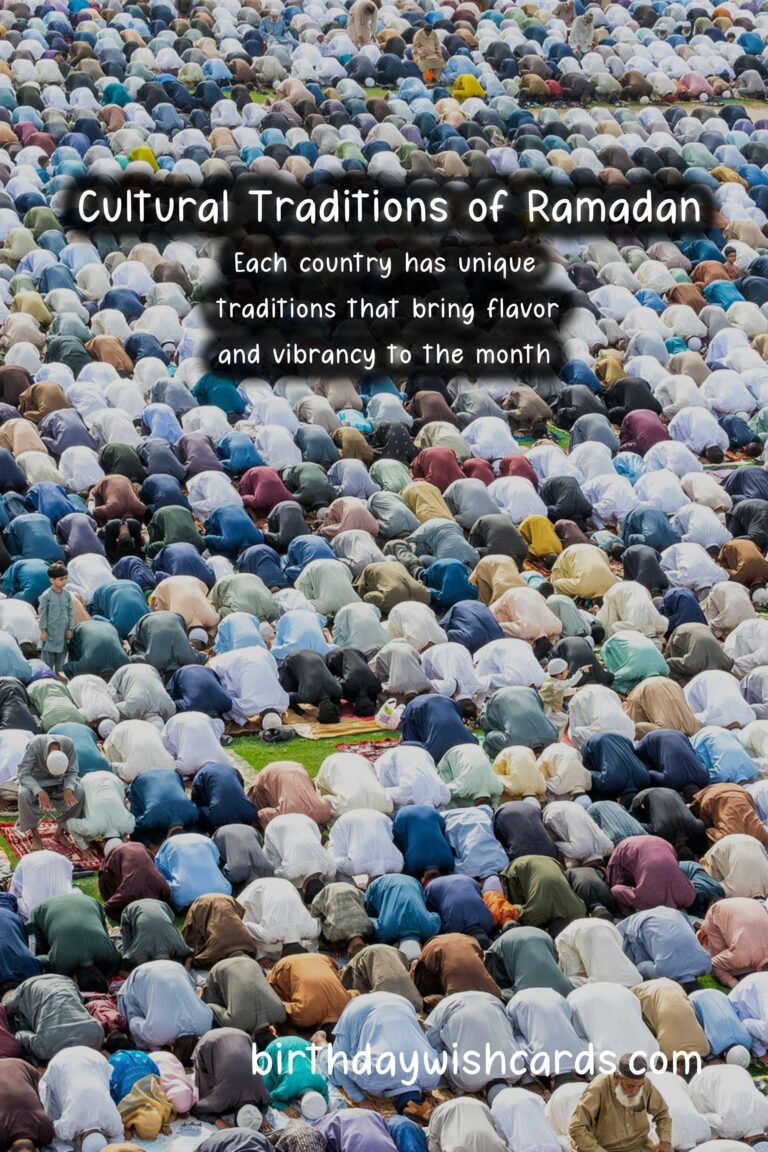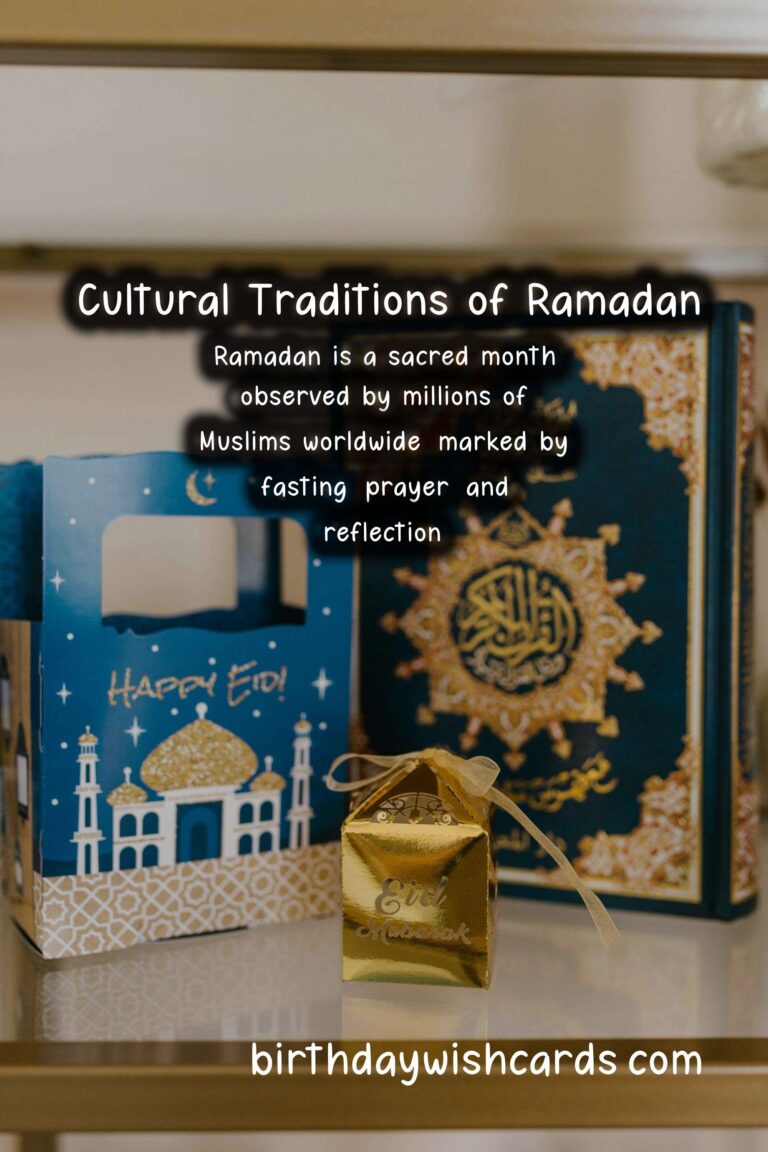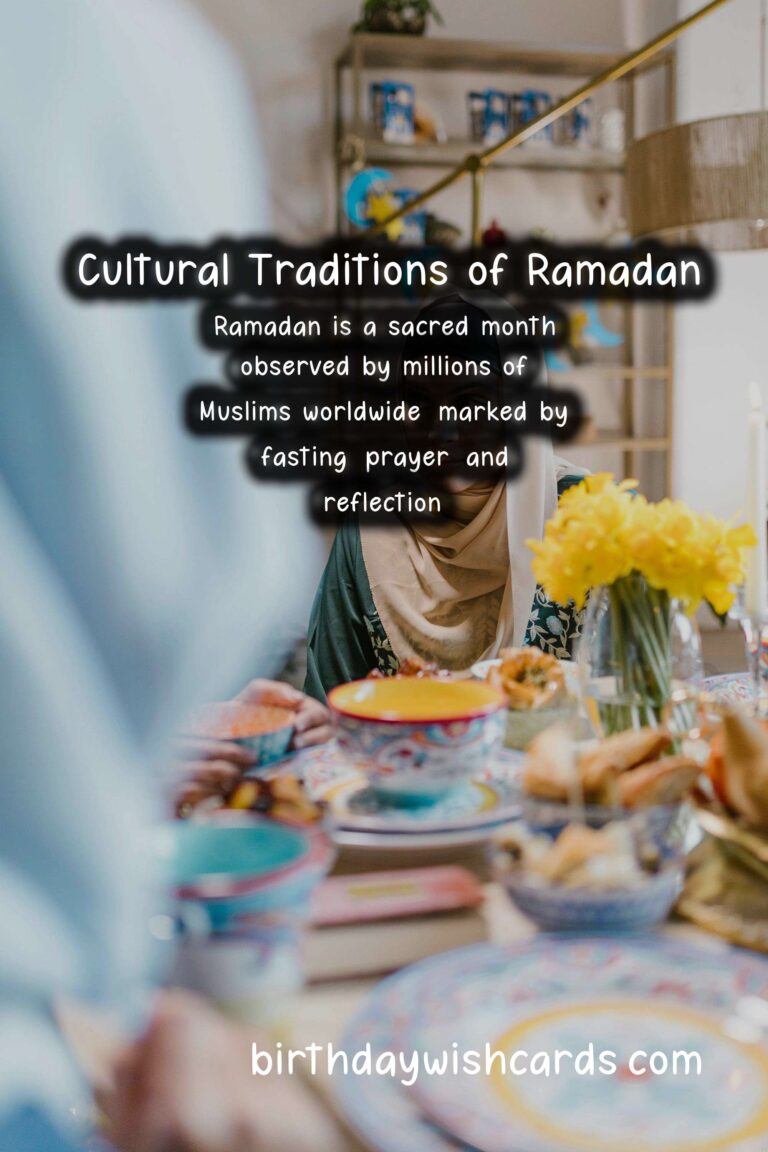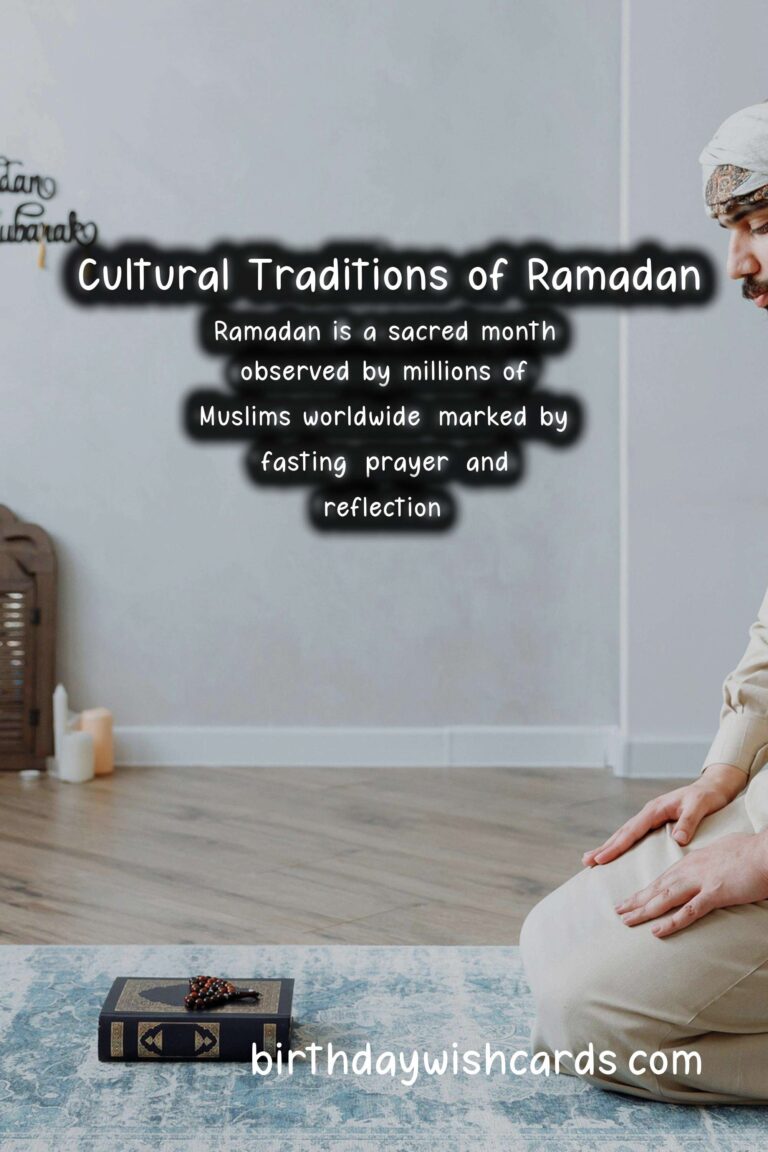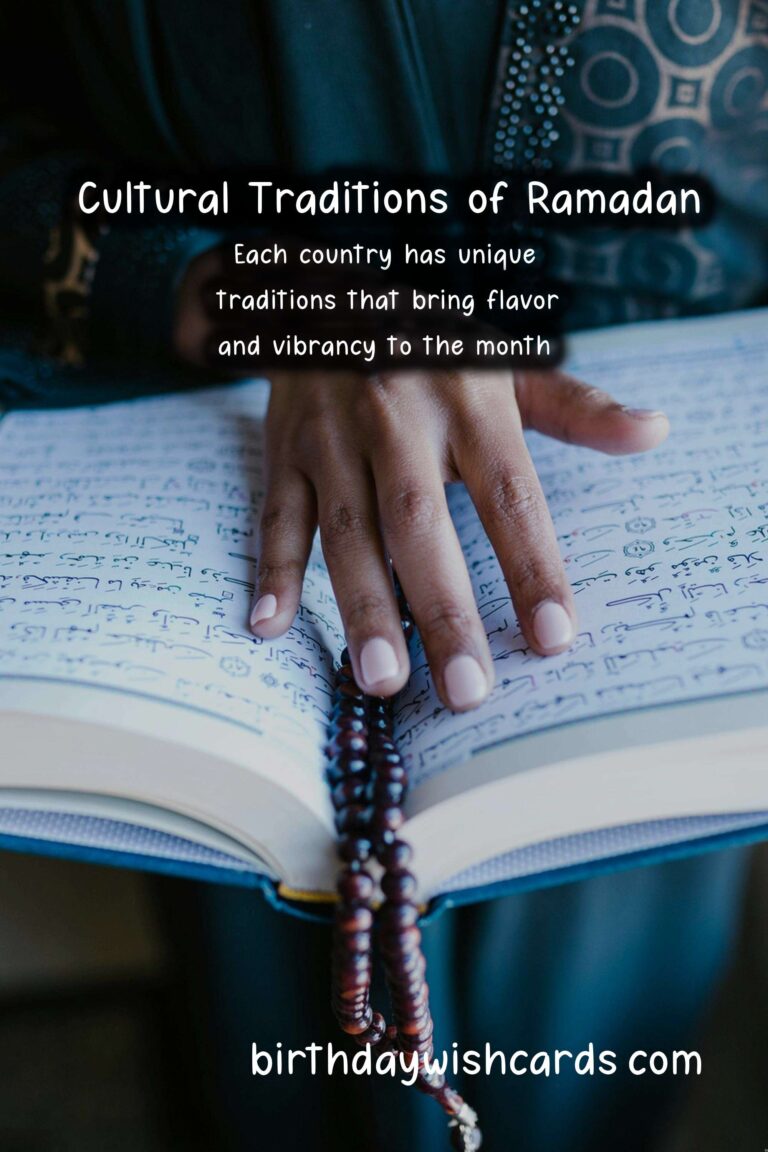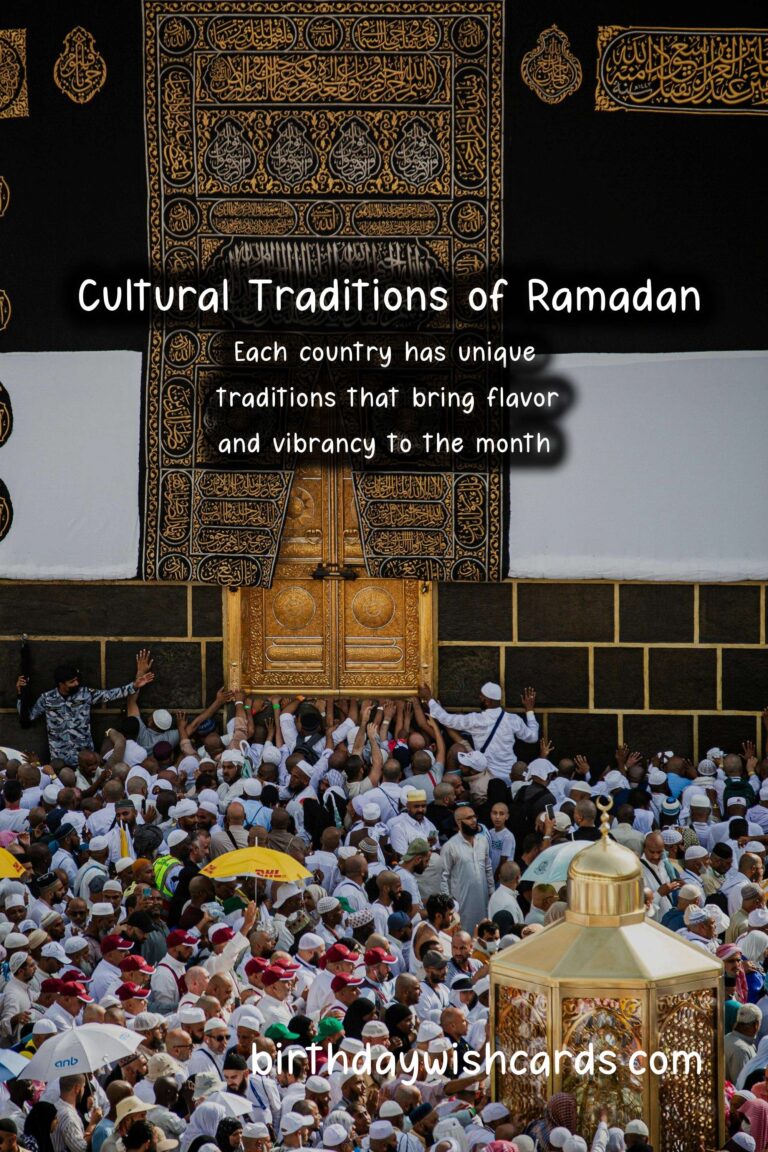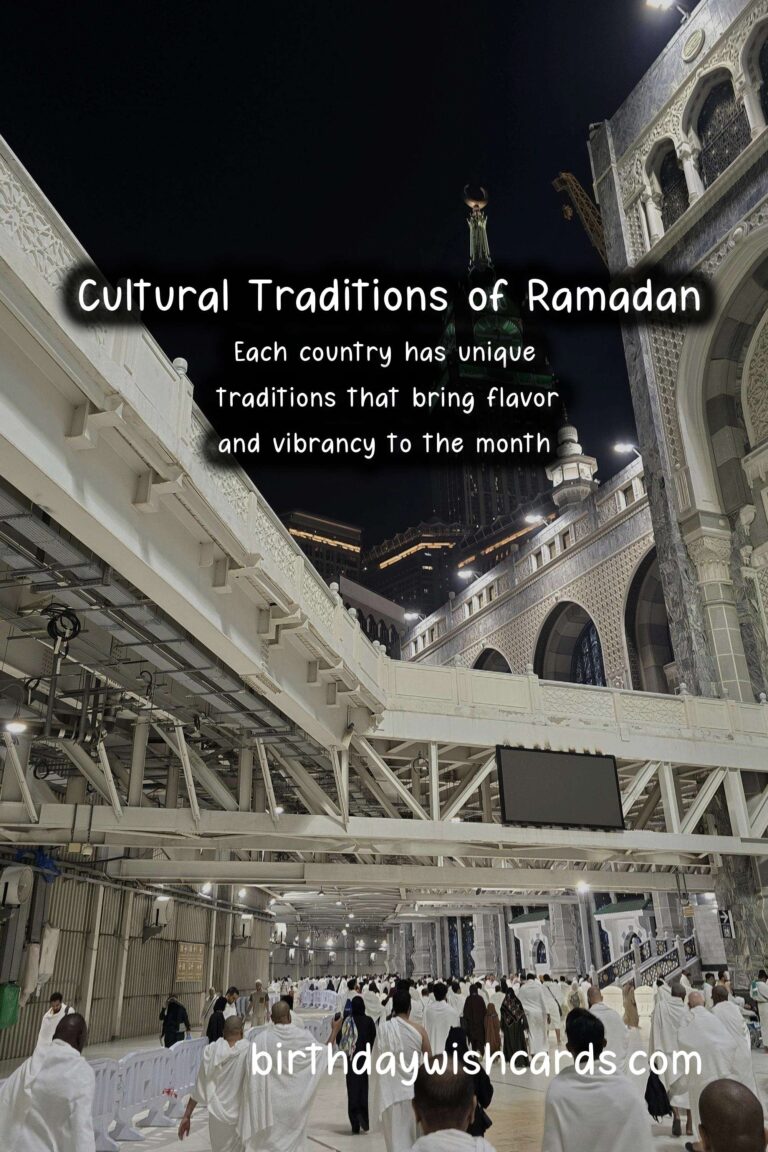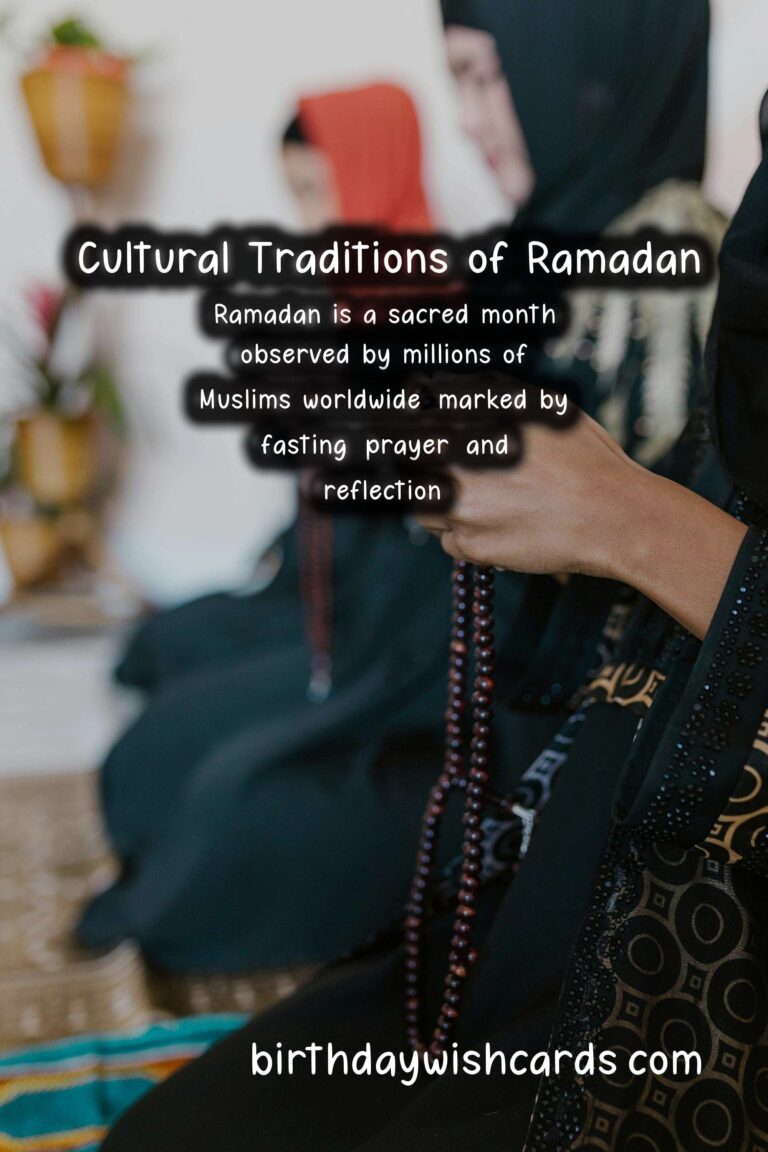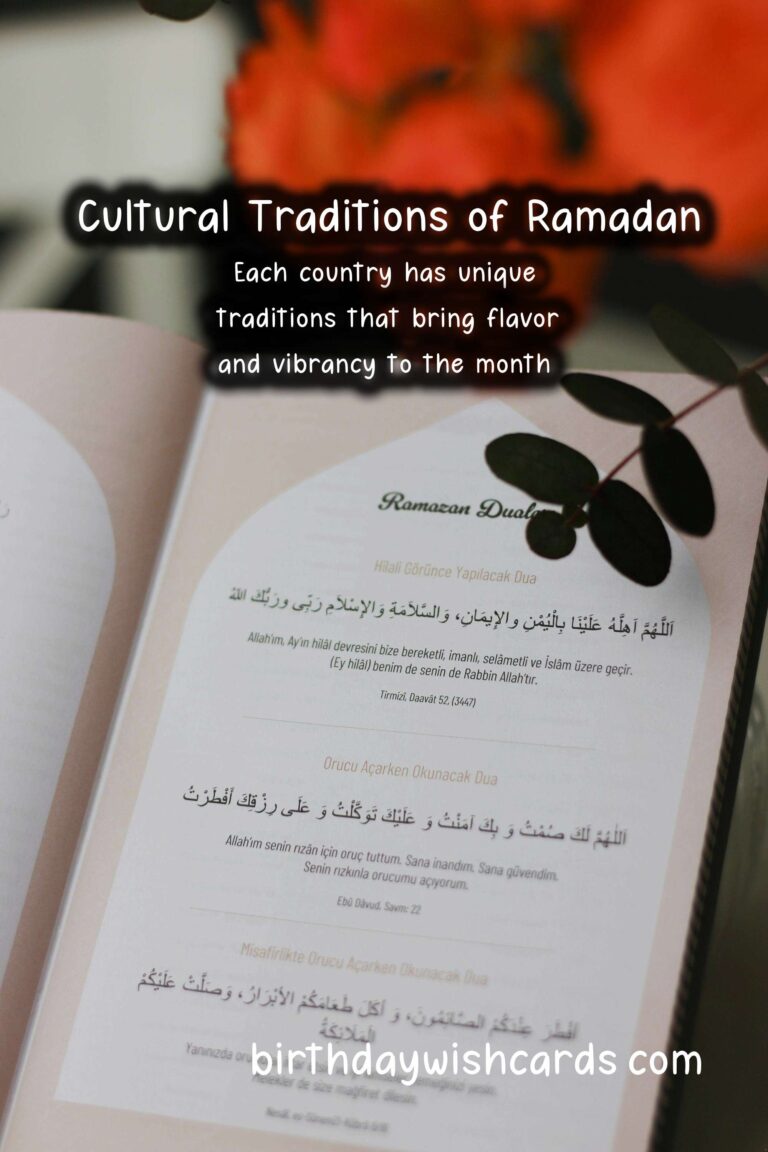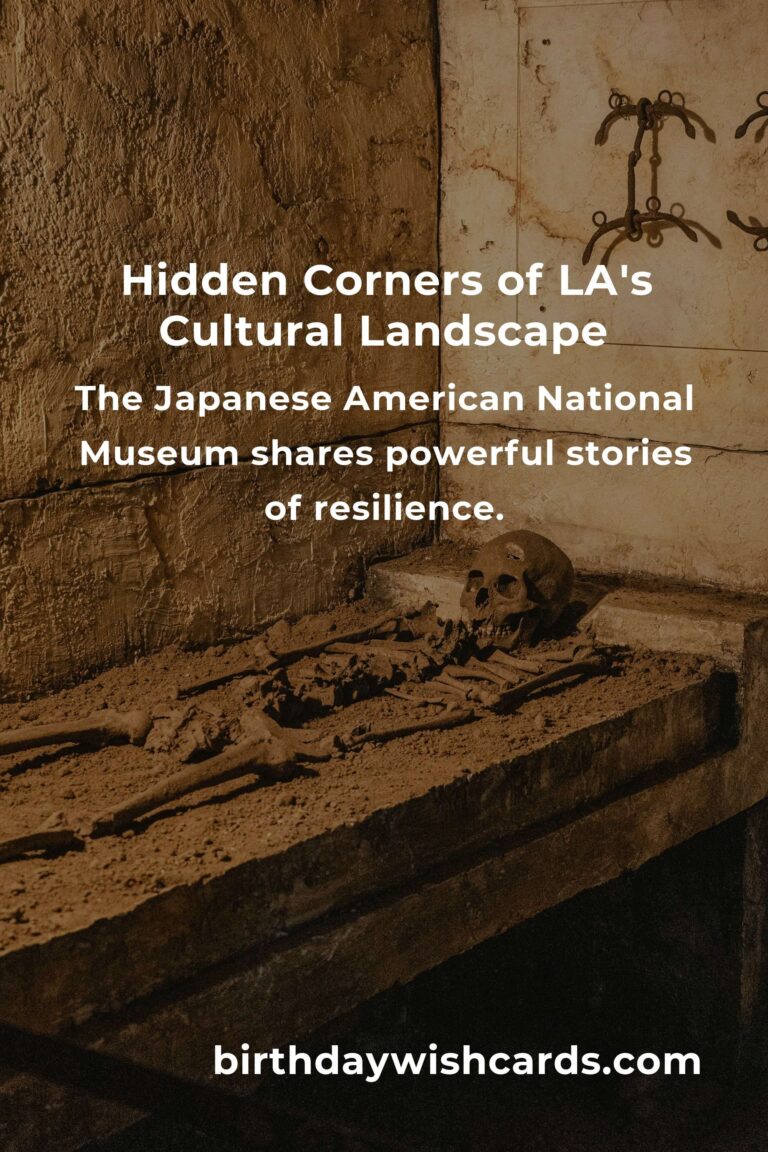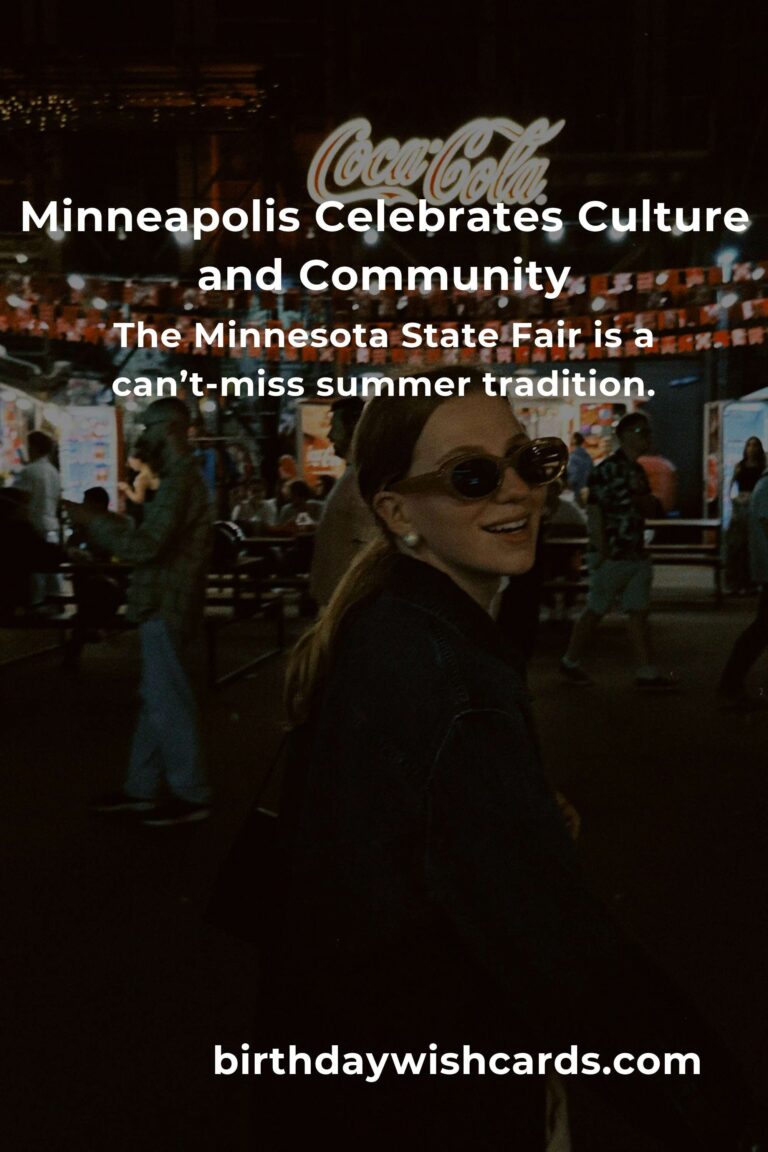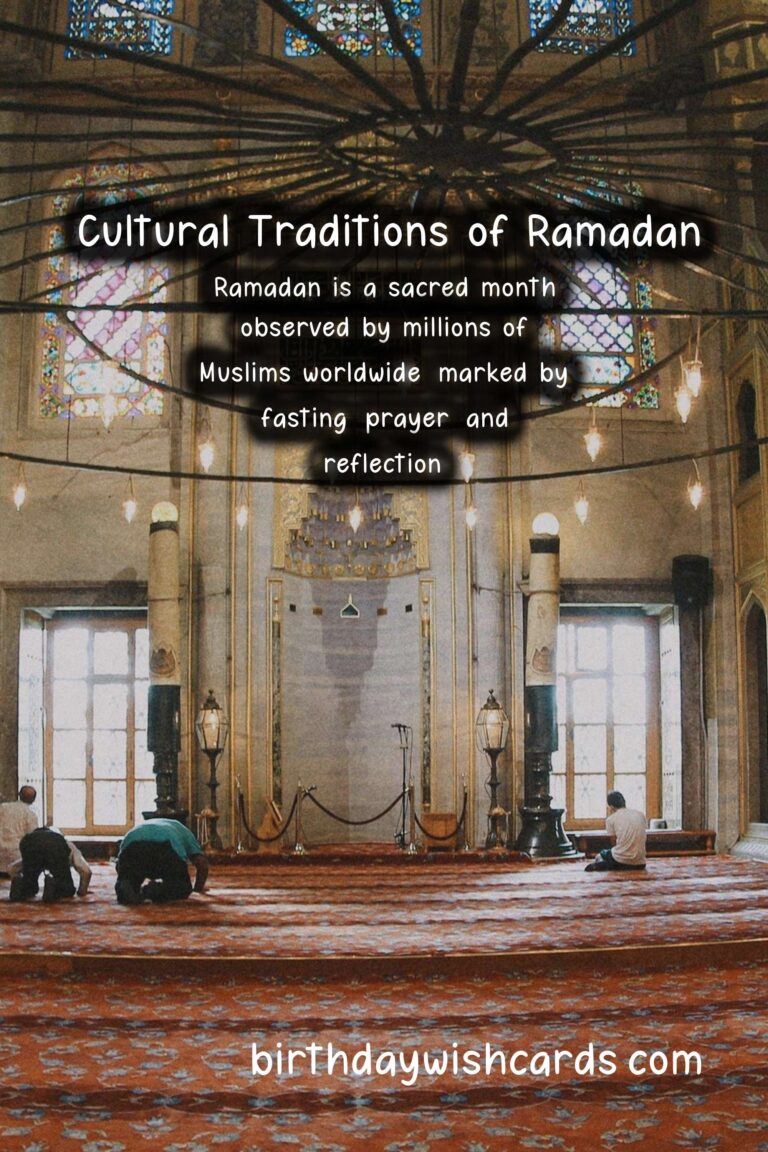
Ramadan is a sacred month observed by millions of Muslims worldwide, marked by fasting, prayer, and reflection. Each country has unique traditions that bring flavor and vibrancy to the month. This article explores various Ramadan traditions from different corners of the globe.
1. Ramadan Traditions in Middle Eastern Countries
In many Middle Eastern countries such as Saudi Arabia, Egypt, and the UAE, Ramadan is a time of community and hospitality. Families often gather to break their fast with Iftar, which begins with eating dates and drinking water, followed by a feast. In Egypt, one unique tradition is the decoration of streets with colorful lanterns called ‘Fawanees’, which symbolize light and joy during the month.
2. Ramadan in South Asia
In countries like Pakistan and India, food plays a central role during Ramadan. Special dishes such as ‘Biryani’ and ‘Samosas’ are prepared and shared among neighbors and friends to foster a sense of togetherness. Additionally, in India, you’ll find ‘Seviyan’, a sweet vermicelli dish served during Iftar, which is deeply cherished.
3. Unique Traditions in Southeast Asia
Countries like Indonesia and Malaysia celebrate Ramadan with distinct cultural practices. In Indonesia, traditional cakes and snacks like ‘Kue Lapis’ are prepared for breaking fast. The Malaysian night markets become vibrant hubs of food stalls offering a variety of delectable Iftar options, from grilled meats to sweet desserts.
4. Ramadan in Africa
Africa is home to a rich tapestry of cultures, and the variations during Ramadan are fascinating. In Morocco, the evening meal known as ‘ftour’ features traditional dishes like ‘Harira’ soup, and mint tea is a staple. In West African nations, meals are often communal, highlighting the importance of sharing and solidarity.
5. The Turkish Ramadan Experience
Turkey has its own unique observations during Ramadan. One of the most notable is the tradition of ‘drum beating’ at dawn to awaken the faithful for suhoor (the pre-dawn meal). Moreover, special Ramadan pides (a type of flatbread) are commonly enjoyed, and many mosques hold ‘iftaar’ gatherings, fostering community spirit.
6. Western Traditions
In Western countries like the USA and UK, Ramadan is celebrated in various ways depending on the local Muslim communities. Many Muslims organize events to educate others about Ramadan, holding open Iftar dinners where people of all faiths are invited to break fast together. This tradition promotes interfaith dialogue and friendship.
7. The Role of Charity
Regardless of the country, Ramadan is also characterized by an increase in charitable activities. Muslims are encouraged to give back, which includes donating to local charities and assisting those in need. This universal practice ties all individuals in the wider Muslim community together during the month.
In conclusion, the various traditions associated with Ramadan provide a window into the rich cultural diversity within the Muslim world. While the essence of Ramadan, which is fasting and prayer, remains the same, the unique ways in which it is celebrated across different countries reflects the beauty of cultural expression and community values.
Ramadan is a sacred month observed by millions of Muslims worldwide, marked by fasting, prayer, and reflection. Each country has unique traditions that bring flavor and vibrancy to the month. 
